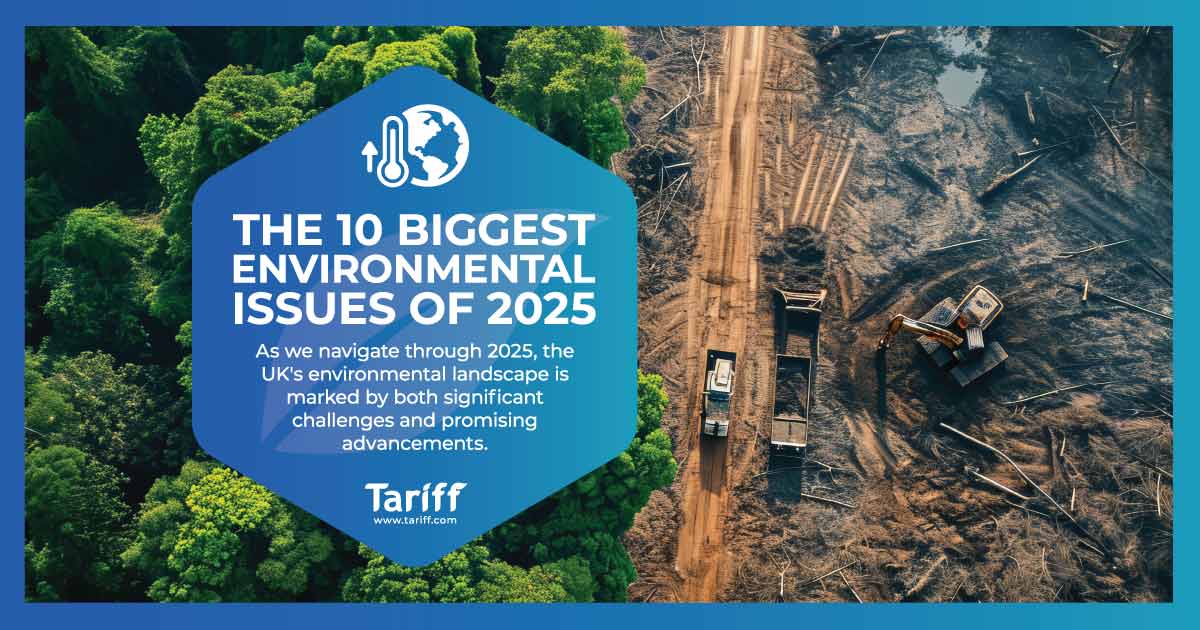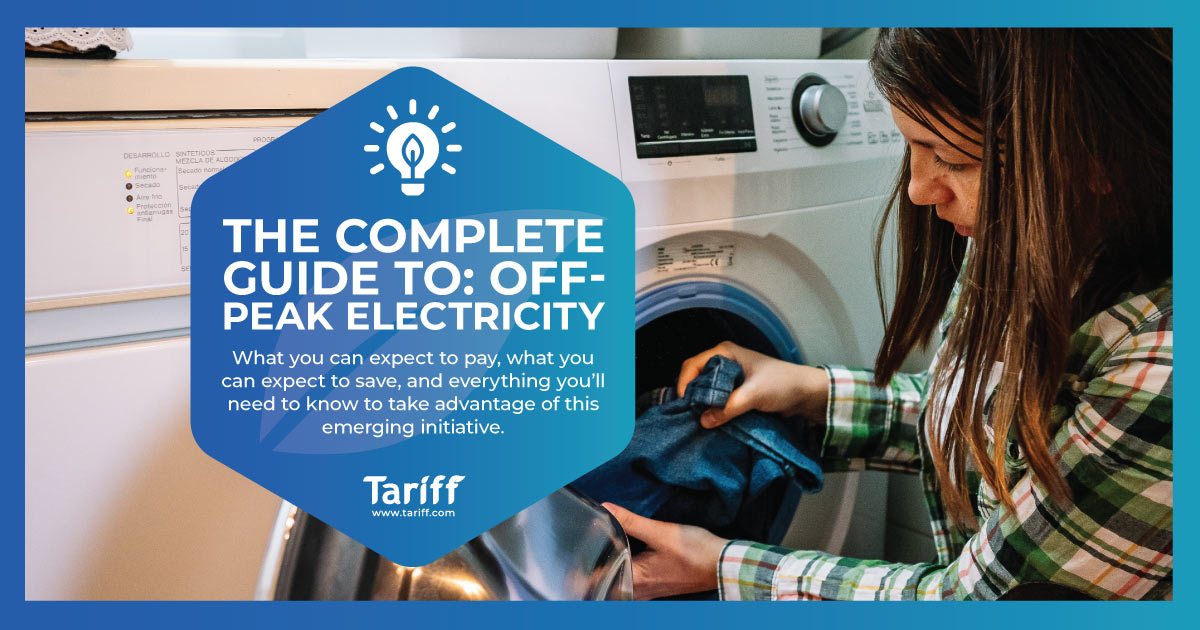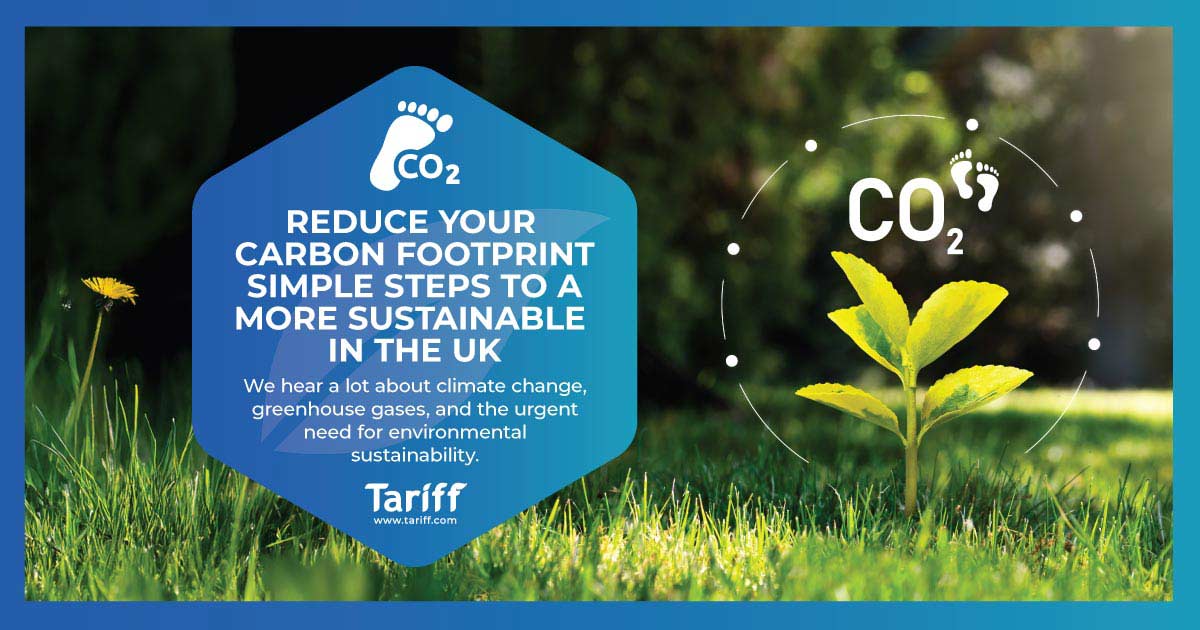Business Utilities In Hospitality: What You Need To Know
It’s no secret that one of the biggest obstacles facing both new and established hospitality businesses are the utility bills. From those initial set up costs for kitchens and service areas, right through to simply keeping the lights and heating on for your guests, there’s an astronomical range of costs and surcharges associated with utilities in hospitality.
For some, it can be overwhelming, and a simply insurmountable first hurdle. Our much-loved hospitality sector is suffering as a result, with an estimated 40% of all businesses citing energy prices as one of their main concerns when it comes to finances. There are options available, however.
That’s understandable, too. The latest estimates place the average cost of utility bills at around 30 – 40% of a hospitality business’ annual turnover, with staff wages and purchasing costs also contributing a substantial amount.
With our latest guide, we’ll be exploring the evolving landscape of utilities across the hospitality sector. We’ll break down what you can do to combat rising costs, key measures that are set to futureproof your endeavours, and how Tariff could be the ideal ticket for a more sustainable, affordable future.
Out Of The Frying Pan: How Utilities Have Changed Post-Pandemic
It’s safe to say that the COVID pandemic had an incalculable impact on the hospitality sector. We’re only now starting to truly understand its impacts, with an estimated 650,000 businesses closing their doors across 2020 and 2021.
That doesn’t take into account the 81% of all hospitality and leisure businesses that ceased trading during those first uncertain months of the pandemic. There’s likely more, too – family run cafés and B&Bs grappled with unseen and unreported issues, and still more simply couldn’t keep up.
For those outside the sector, schemes like Eat Out to Help Out will seem like a distant memory, but for those intimately involved in hospitality are no longer still familiar with its lingering aftereffects. That’s especially true of utilities, which are now experiencing fluctuations and huge-scale changes.
Geopolitical tensions, new legislation and a shifting planetary focus all contribute towards the rising costs of energy. The energy market’s instabilities truly began in early 2022 as a result of the Russian invasion of Ukraine, but there’s several different factors that all feed into the rising costs of business electricity bills.
Those ripple effects are very much still in the collective consciousness of hospitality businesses. Recent statistics point towards energy utility costs for hotels almost 50% higher than they were pre-pandemic, and almost double the rates businesses saw in back in 2018.
It’s the smaller businesses that are feeling the pinch more than others, too. Interviews conducted by the Boutique Hotelier got the insider scoop from hotels across the UK, all of whom have seen meteoric increases – some as high as almost 300% – when compared with previous years.
There’s even been changes since then, with governmental support drying up, and businesses left to contend with higher costs and even higher pressure without the support that had previously been offered.
Looking at the modern landscape of utility costs for the hospitality industry reveals an equally grim picture. While occupancy rates are at their peak since COVID, hotels, restaurants and pubs all still face inflated costs and concerning figures on their business bills. There’s options available, however.
5 Key Tips On Slicing Your Utility Bill Down To Size
We’ve compiled a few crucial ideas on what you can do to help alleviate some of the stresses that come with that dread final bill, and exactly how you can implement them to maximise success with minimal disruption.
#1 – Prep Stage: It All Starts With An Energy Audit
Arguably one of the most crucial aspects of saving money on your hospitality utility bills is understanding where your money is being spent in the first place. While you might have a good grasp of how many guests you have and where they’re staying, there’s little way to tell what power they’re using in their rooms.
This is where an energy audit really comes to the fore. We recently wrote a comprehensive guide to the energy auditing process, but we’ll give you a more concise overview of what that process entails here, too.
Distilled down, there’s two key types of energy audit – preliminary auditing, and detailed auditing.
While a preliminary auditing process is shorter, and works well in addressing more immediately obvious areas of concern for your energy usage and the safety of your property (damp, draughts and damage, for example), an in-depth process will naturally be more thorough, and offer more avenues for action.
This uses intelligent tools like thermographic cameras to monitor surface temperatures, and flowmeters to test boiler efficiency. These are then used to compile a more comprehensive report, which offers those crucial improvements you can make to really impact your bills.
They’re always conducted by a trained, recognised authority, and are designed to improve energy efficiency. They’re also an underused resource for many, with a recent report from Green Alliance placing the percentage of businesses that have actually made meaningful change in the region of 20%.
That’s where we’d strongly advise starting. Energy in the hospitality sector is, as we’ve already touched upon, an expensive necessity, and by opting for an audit that allows you to streamline where the energy you’re paying for is being used, you’re able to ensure you’re only paying for what you and your guests use.
#2 – Cutting Edge: Keep Up-To-Date With Energy Efficient Tech
While understanding where you energy is being used is one thing, taking practicable and impactful action is another thing entirely. It can also often be where many in the hospitality sector get lost – learning what needs to be upgraded or changed out as a priority is a difficult decision to make.
That’s why it’s crucial to lead with the energy audit we’ve just mentioned, which offers more professional insight into what needs upgrading as a priority. However, it’s also imperative that you use your own expertise – you likely know your premises and your assets far better than anyone else, and keeping track of appliances falls under that remit.
The true scale of it comes with the money you save, though. Our recent report on the benefits of energy efficient appliances for homes touches on just how much you could save, with some of the headline figures being:
- Boiler switches can save north of £550 per year, depending on the level of energy efficiency you opt for. Larger systems (such as those in bigger hotels or resorts) will save comparatively more.
- A more up-to-date Heating, Ventilation and Air Conditioning (HVAC) system could save upwards of 15% on your final bills, especially if you’ve never replaced your current system since taking over, or if you operate an older property.
- LED Lighting – particularly in areas that are constantly lit such as corridors or reception areas – is a massive yet cost-effective change. While still more expensive than the traditional fluorescent tubing, it can save as much as 70% on lighting costs.
There’s also smaller changes you can make, too. Of course, when it comes to your refrigerators, the ideal option would be to upgrade them, but if that’s not feasible – or you’ve only recently refurbed – keeping a fridge fuller can help with better air flow, and more efficient compressor cycling.
Similarly, running washing machines at a lower temperature – where possible – is an easy way to reduce running costs, and cut down the pressure you place on the motor. Of course, you’ll need to hotter washes for sheets and other soft furnishings (particularly if there’s any suspect stains), but it’s also a great idea to use cooler washes where possible.
#3 – Penthouse Treatment: Invest In Smart Technology For Energy
No doubt one of the biggest movements in energy in recent years, the impact of smart metering simply can’t be understated. They’ve fast become a mainstay in homes and small businesses across the country, but their scalability and adaptability means they’re also quickly earning a spot in the hospitality industry, too.
They’re an ideal way to measure consumption, even after you’ve had had a professional energy audit done. In fact, the latest figures show that a smart meter can cut electricity consumption by as much as 3.4%, and gas usage by 3%.
Of course, these will need to be done at scale, especially for larger buildings, resorts or complexes, but the technology exists already and is robust enough to match with the demands of what businesses need. As a business energy switching service, we’ve got extensive experience with that, and we know just how impactful these can be.
One of the observations we’ve made – and that we’ve documented extensively in our complete guide to unlocking the full potential of smart meters in business – is how this can impact your final bills.
Older systems, such as those where you’ll need to manually submit a meter reading, are prone to human error, and to misinterpretation. Smart meters completely remove that, using intelligent tech to accurately track how much energy your premises is using, and what that’s going to cost.
As the technology has evolved, so too has the information these present. With modern models, you’re able to see current energy usage, what you’ve used so far, and even predict what your final bill is expected to be at the end of the month.
That’s only set to continue as we progress into the future, too. We’re yet to fully feel the reach of AI in the commercial energy industry, but there’s no doubt that this will soon become a more concrete part of it, whether that’s in expanding the information they provide, or offering more insights into how energy can be saved going forward.
#4 – Off-Season Adjustments: Plan Your Energy Usage Around Peak Periods
This is one that most hospitality and leisure businesses will already do as part of their usual checks, but it bears repeating as part of these tips. Adjusting your energy consumption during periods when you’re less busy is incredibly beneficial for several key reasons.
The first, and some would argue most important, point is the positive environmental impact that reducing your consumption where possible can have. Of course, we’re all well aware of the net-zero deadline of 2050 that was set out in COP26, but we all have a duty to do what we can to make sustainable change to what we do.
However, for businesses and their bottom line, the money saving aspect is more music to their ears. Lights left on, appliances running ineffectively, and even computers and laptops on standby can all contribute massively towards the bill you pay each month.
By taking the time – either manually, or by setting timers for lights and appliances during off-peak hours – to turn down the lights and check for those errant standby devices, you’re ultimately shaving off pennies and pounds at a time from that final bill.
There’s also adjustments you can make to cut costs while still keeping those quality of life features your guests no doubt appreciate. Running an air conditioner for 24 hours is estimated to cost around £6, whereas a fan costs a comparatively small 30 pence per 24 hours of constant running.
Similar, having lighting on a timer or a card-based system – as many modern hotels already do – allows for more effective use of the lighting, heating and ventilation systems in guest rooms. This not only means rooms are left in cool darkness while visitors are out and about, but also that you’re not paying to illuminate a room no one is using.
#5 – Make A Splash: Analyse Your Water Usage
An oft-overlooked part of utility bills in the hospitality sector, your water contributes an estimated 22% towards what hospitality businesses spend on their energy. Understandably so – kitchens, bathrooms and even staff facilities all contribute towards that overall expenditure.
The first step is to look into switching the company that provides your water. While domestic properties don’t have that luxury, the business water market was deregulated several decades ago, meaning companies are able to choose a provider that can offer a cheaper or better suited deal.
It’s thought that businesses can save up to 20% on their water bills, either through a dedicated business water switching service like Tariff, or by trawling the market yourself to source the right deal.
The savings don’t end there, either. Innovations like low-flow faucets and taps – now a regular feature of more budget-friendly guesthouses and hotels – are among the most impactful changes a business can invest in from a water-saving perspective, reducing water consumption in rooms by up to 30%.
There’s similar technology available for showers and toilets, too, which still provide that premium experience your guests will no doubt be expecting. Lower flow showerheads are a cheaper investment, but still help trim down the costs by a noticeable figure at the end of the month.
Cherry On Top: Choose Tariff For Your Hospitality Business Utilities
With the hospitality sector taking a battering in recent years, both from the global pandemic and the fluctuating circumstances around energy prices, you doubtless need someone on your side who truly understands the difficulties of energy in the hospitality industry.
That’s exactly what Tariff can provide. With our extensive levels of experience, tailormade service, and highly knowledgeable energy professionals, we’re able to provide fully bespoke solutions for your energy needs.
We scour the market to discover the ideal solution for you and your unique venture – no two of our energy solutions are the same, in much the same way that no two businesses are, either. That all culminates in finding the right energy deal for you, whether that’s your water, gas or electricity, and guiding you along the path to cheaper, more sustainable power.
Contact our in-house experts today to discuss how we can revolutionise the hospitality sector’s business energy needs, and to receive a free, no obligation quotation.




